Geography
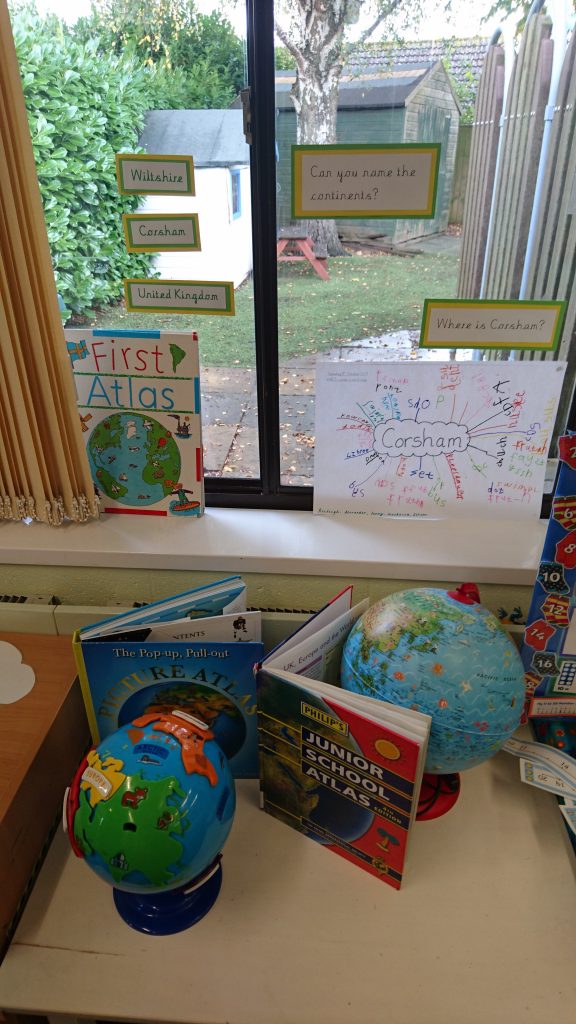
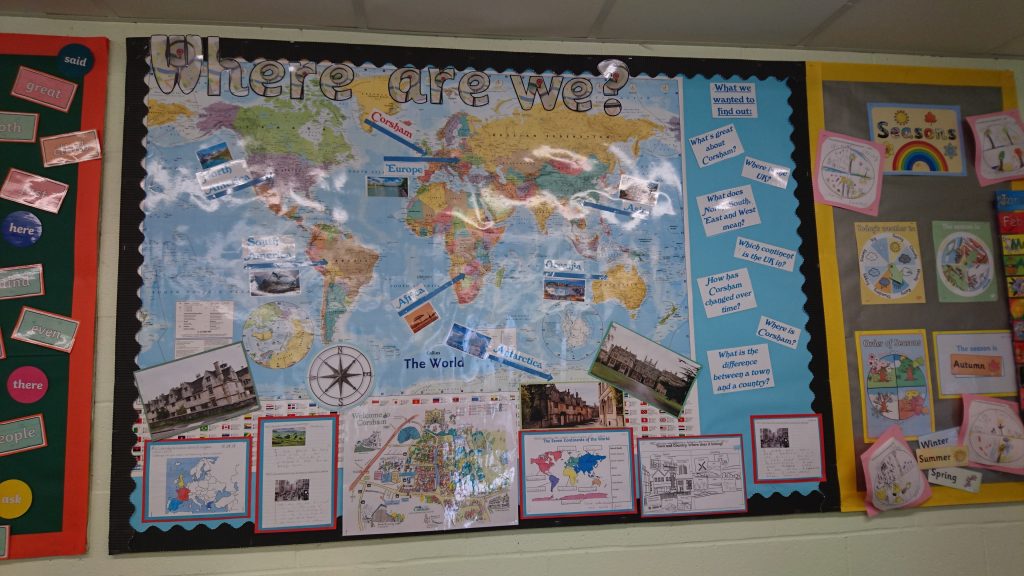
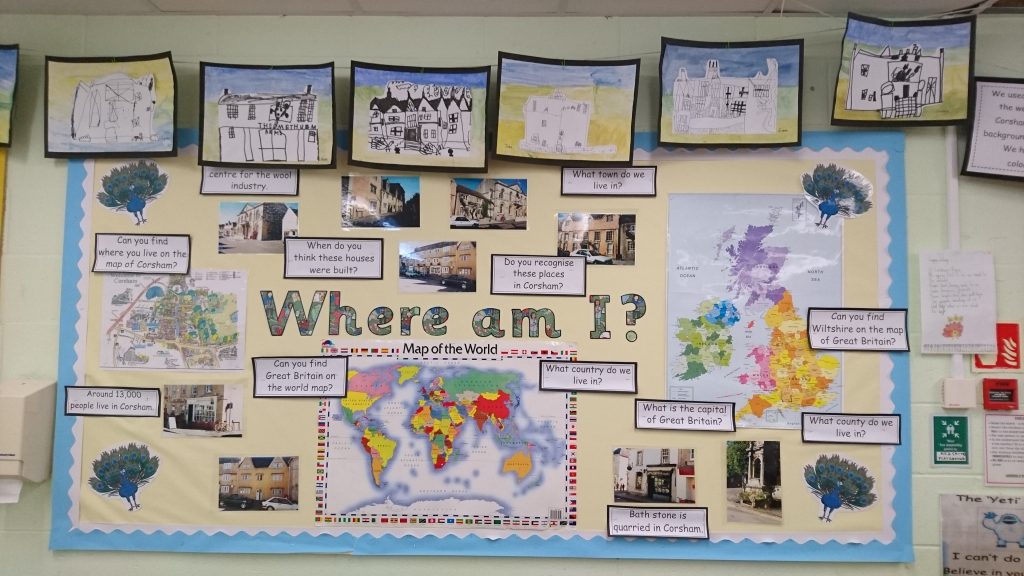
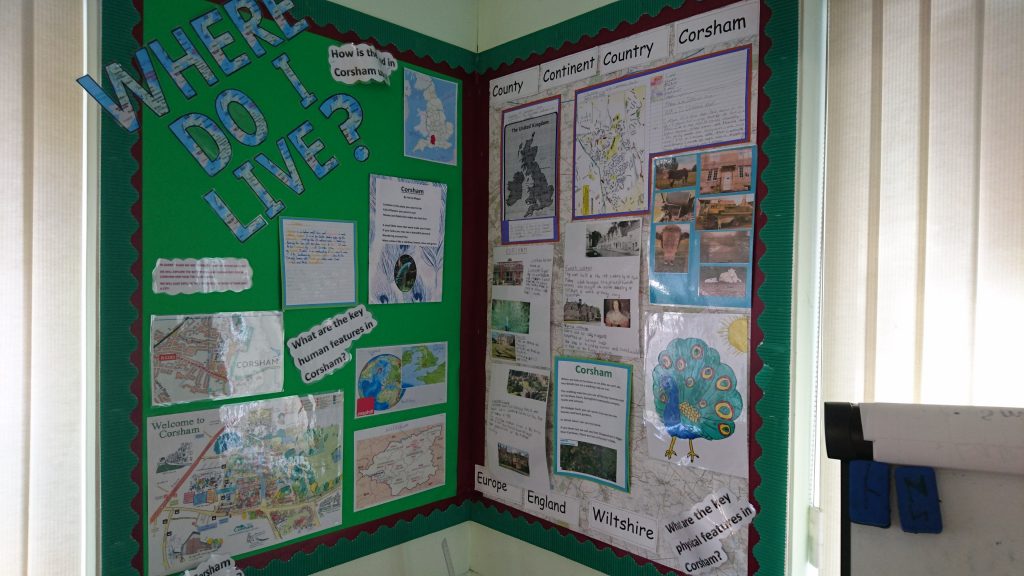
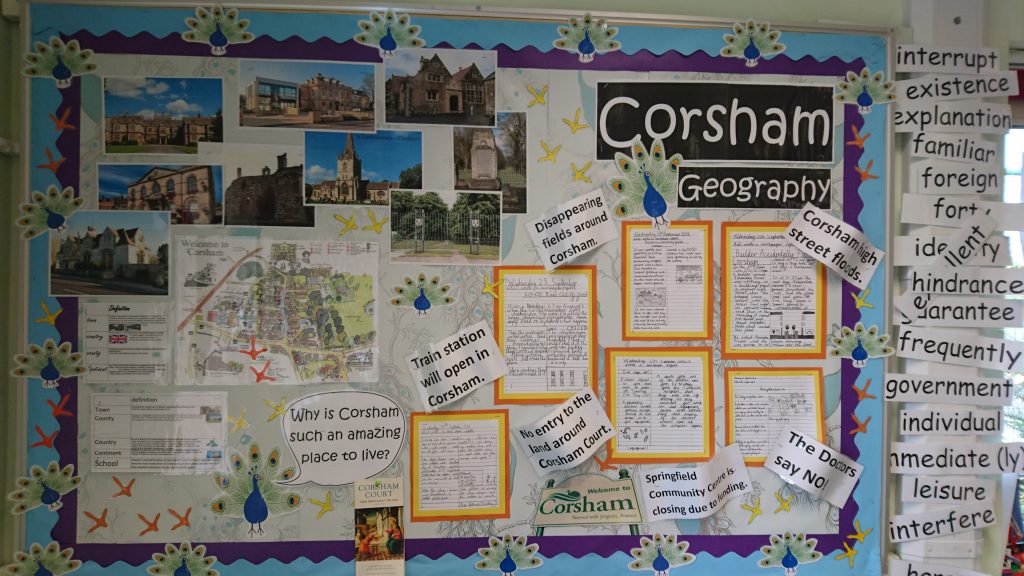
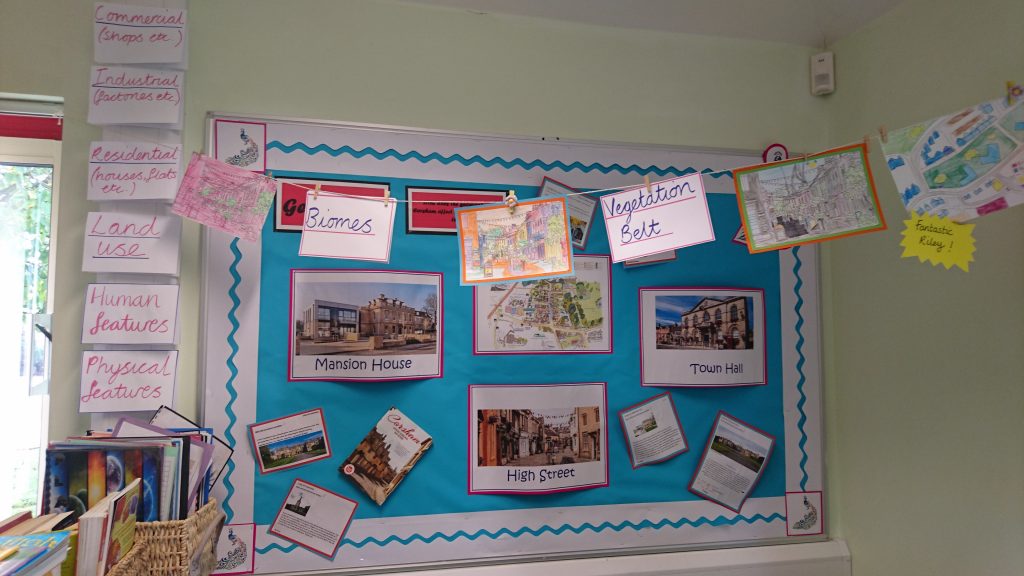
At Corsham Regis, we have devised a creative curriculum that allows the children’s key skills to be developed and implemented across the subjects.
Geography is included in this fantastic curriculum. Children are taught a range of skills through a variety of activities. These skills are met throughout their school years and develop according to the children’s ability. They encourage expansion of the children’s knowledge and understanding of places, patterns and processes, environmental change and sustainable development.
How to communicate using appropriate vocabulary
In Foundation Stage, the children undertake a wide range of activities, which help them to develop their communication and understanding of the world around them.
In KS1, the children are encouraged to use basic geographical vocabulary to refer to and describe key physical and human features of locations.
The children in KS2 learn to describe and understand key aspects of:
- physical geography, including: climate zones, biomes and vegetation belts, rivers, mountains, volcanoes and earthquakes and the water cycle;
- human geography, including: settlements, land use, economic activity including trade links and the distribution of natural resources including energy, food, minerals and water supplies.
About Corsham and their local area
At Foundation Stage level, this includes observing and asking questions about aspects of their familiar world, such as the place where they live or the natural world.
In KS1, pupils investigate their local area, finding out about the environment and the people who live there.
KS2 pupils continue to develop their enquiry skills, investigating a variety of people, places and environments across the UK and abroad.
Both Key Stages carry out geographical enquiry inside and outside the classroom and this is often linked to visits in the neighbourhood.
Through experiences inside and beyond the classroom
FS2 children are encouraged to talk about some of the things they have observed, such as plants, animals, natural and found objects.
Fieldwork and observational skills are also developed for all pupils, through local field work trips and beyond.
New knowledge and understanding appropriate to their age
FS2 pupils are taught to talk about why things happen, as well developing an understanding of changes over time.
In KS1, the children also begin to learn about the wider world, through exciting and enjoyable activities, such as looking at maps, atlases, globes and online resources. They use these to investigate the countries and capitals of the United Kingdom, the world’s continents and oceans and explore weather and climate in the United Kingdom, as well as around the world.
KS2 pupils need to locate the world’s countries, with a focus on Europe, North and South America and countries of particular interest to pupils. They are taught how to identify key geographical features of the countries of the United Kingdom, and show an understanding of how some of these aspects have changed over time. They learn how to locate and understand the significance of the geographic zones of the world, as well as understanding geographical similarities and differences through the study of human and physical geography of a region or area within the United Kingdom, a European country and North or South America.
How to keep themselves safe
When using the internet to access geographical resources, the children are encouraged to search safely and use child friendly sites such as Swiggle. During lessons, the pupils have access to a wide range of resources to support their learning and are taught to respect online resources.